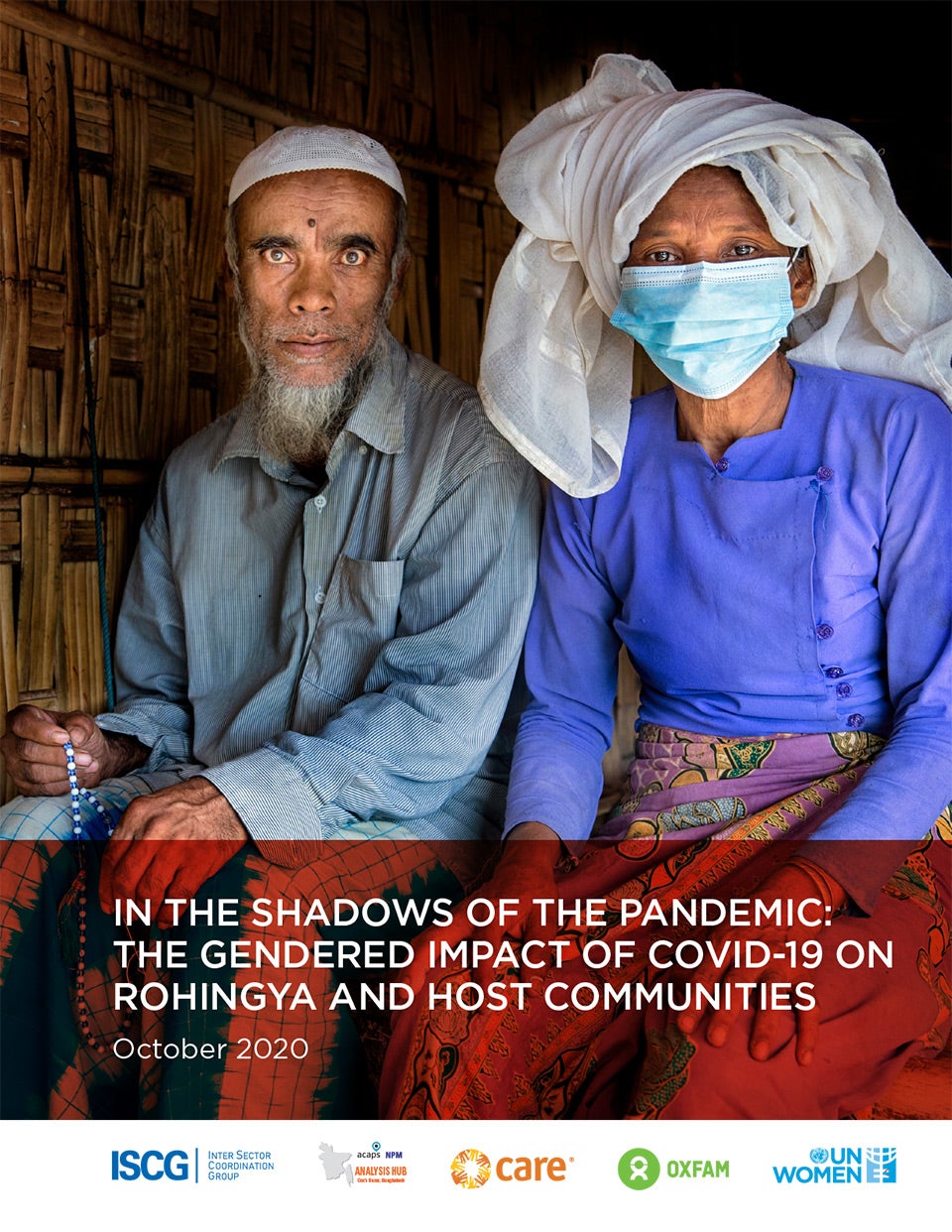COVID-19 pandemic increases risks for female Rohingya refugees in Bangladesh
Date:
Author: Joelle Charbonneau

Cox’s Bazar, Bangladesh — The COVID-19 pandemic has exacerbated gender discrimination and inequality among the hundreds of thousands of Rohingya living in refugee camps in Cox’s Bazar and among the surrounding communities.
Women and girls face increases in unpaid care work at home, safety risks inside and outside their homes, mental health problems, and simultaneously, less access to life-saving services and support. Vulnerable groups and people who already were marginalized and excluded in society have all faced greater challenges and risks.
A female Rohingya refugee said: “Men cannot not go to work and in any case, there is no work. Because of the containment measures, they cannot go out to the villages and earn money. They have to stay at home. They beat their wives. Women are suffering from the violence.”
These findings are discussed in a new report, In the Shadows of the Pandemic: The Gendered Impact of COVID-19 on Rohingya and Host Communities, released by Inter-Sector Coordination Group Gender Hub in collaboration with ACAPS-NPM Analysis Hub, CARE, Oxfam and UN Women.
The researchers used primary data collected in the Rohingya and host communities in Cox’s Bazar to understand the impact COVID-19 has had on people in terms of age, gender and other social characteristics, and to analyze how the sociocultural context helps or hinders their ability to cope with the crisis.
The study showed that the pandemic and containment measures have significantly affected women, girls, men and boys. The report also considers the impact on marginalized groups including female sex workers, transgender people and people with disabilities, and analyzes the different challenges for Rohingya and host communities. It provides a detailed breakdown on the impact in six key areas: health, protection, communication with communities, education, food security, and water, sanitation and hygiene.
It is crucial to understand these impacts in order to ensure that the most vulnerable people are not left behind in relief efforts. Achievements in gender equality and empowerment of women and girls are at risk of being undone by COVID-19. Gender norms and roles have barely changed during the pandemic, and COVID-19 has further restricted women’s mobility in public spaces and increased social stigma and gender-based violence, making it challenging for women and leaders of vulnerable groups and relief workers to take active leadership roles.
For inquiries:
Joelle Charbonneau
Communications and Knowledge Management Officer, UN Women Cox’s Bazar
Email: joelle.charbonneau@unwomen.org